Ocala Police Chief Mike Balken is finding his way in guiding an agency shaken by the death of its former leader amid a national fracture in the trust between law enforcement and the communities they serve.
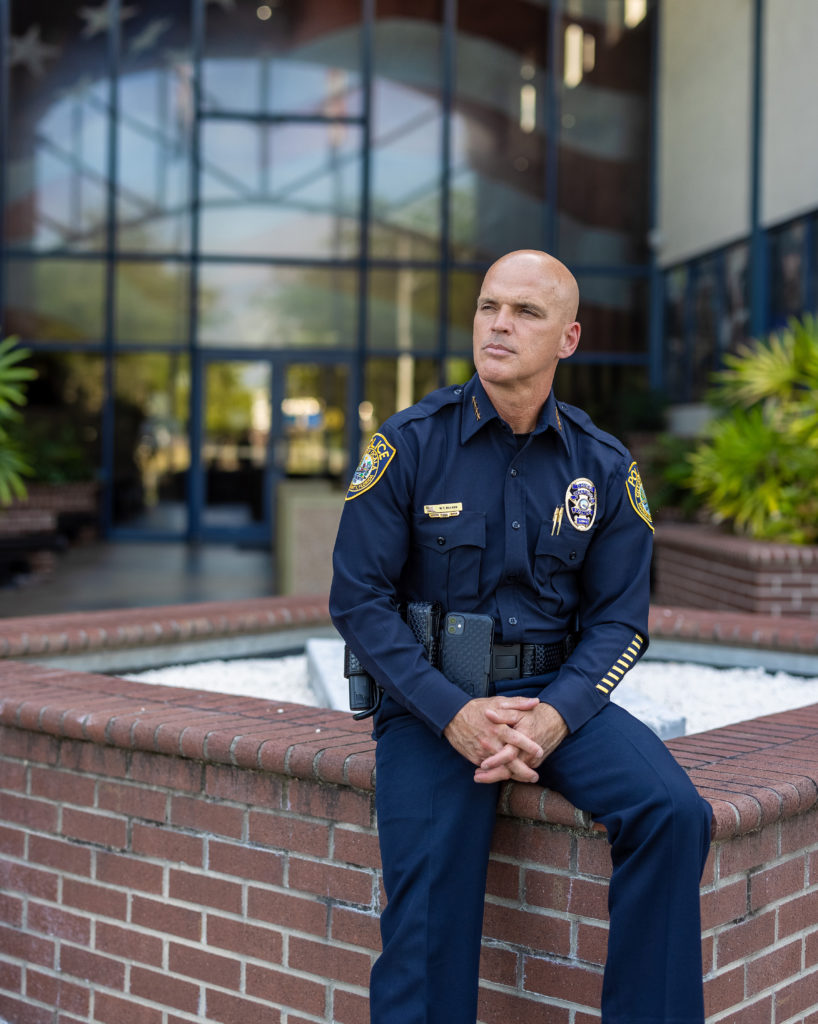 Mike Balken always wanted to be a cop—he wanted it when he was a student in middle school, when he was working with his dad during summer breaks and even as a scrappy teenager living on his own at 15, after telling his father he would rather support himself by washing dishes than leave Ocala. And now, he is Ocala’s top cop—the chief of police.
Mike Balken always wanted to be a cop—he wanted it when he was a student in middle school, when he was working with his dad during summer breaks and even as a scrappy teenager living on his own at 15, after telling his father he would rather support himself by washing dishes than leave Ocala. And now, he is Ocala’s top cop—the chief of police.
Balken’s journey meant he’d have to quit high school so he could work more hours to pay his bills and later earn his GED before he’d be able to enroll in the police academy. But even after he graduated second in his class from the academy, he says he couldn’t “buy a job.” So, he took the Armed Services Vocational Aptitude Battery, an aptitude test developed by the Department of Defense, thinking he would join the Army. Then, at 19, he got a call from the Marion County Sheriff’s Office. While serving as an officer at the jail, he heard that the Ocala Police Department (OPD) was hiring.
In April, he celebrated his 27th year with OPD and his career path has included earning a bachelor’s degree in criminal justice and service as patrol officer, field training officer, detective and supervisor. He rose in rank to sergeant, lieutenant, watch commander, captain, major and, in 2018, deputy chief.
On October 25th, 2020, his commander, mentor and friend, Chief Greg Graham, died tragically in a plane crash near Dunnellon. Just over a week later, Ocala Mayor Kent Guinn, who has oversight of the police department, named Balken interim chief. The Ocala City Council, on November 17th, unanimously appointed Balken as the new chief.
With six months on the job, which has put him in the spotlight during a time of deep grief within the agency and the community at Graham’s passing and compounded by increased scrutiny and criticism towards America’s law enforcement agencies, based on incidents such as the death of George Floyd, as well as the ongoing pandemic, Balken admits he is still finding his feet.
“I’ve been pulled in a lot of different directions,” he shares. “This came at a time when we were dealing with a lot of issues, but I feel like we’re moving forward.”
Balken says his challenges include the future of law enforcement as it relates to “our ability to recruit and retain the level of officer that I’m going to demand.” He explains that as Ocala/Marion County is growing at a tremendous rate, “We have had officers retire early or resign to seek employment in the private sector because it’s lucrative.”
He also acknowledges that another factor is causing officers to leave the field: We are “in a time when the law enforcement profession is not as highly regarded as in the past.”
He believes that law enforcement officers around the nation and in Ocala “put their uniform on every day with the idea that they are going to go out and help people.”
“I think we’re moving forward in the right direction,” he says of the staff at OPD. “We want to continue to lower the crime rate, have a bigger impact on the opioid epidemic and work to improve relationships within our community. I’m feeling more and more confident every day with the way the agency is moving and the folks we have on staff. I couldn’t be more proud of the job they’re doing.”
Mayor Guinn reveals that Balken was always on track to assume his current role.
“The plan was, when Chief Graham retired, to make him chief. That’s why Greg made him deputy chief a couple of years ago, so things are working out well,” Guinn offers. “I think Mike’s doing a wonderful job.”
Tenacious Teenager
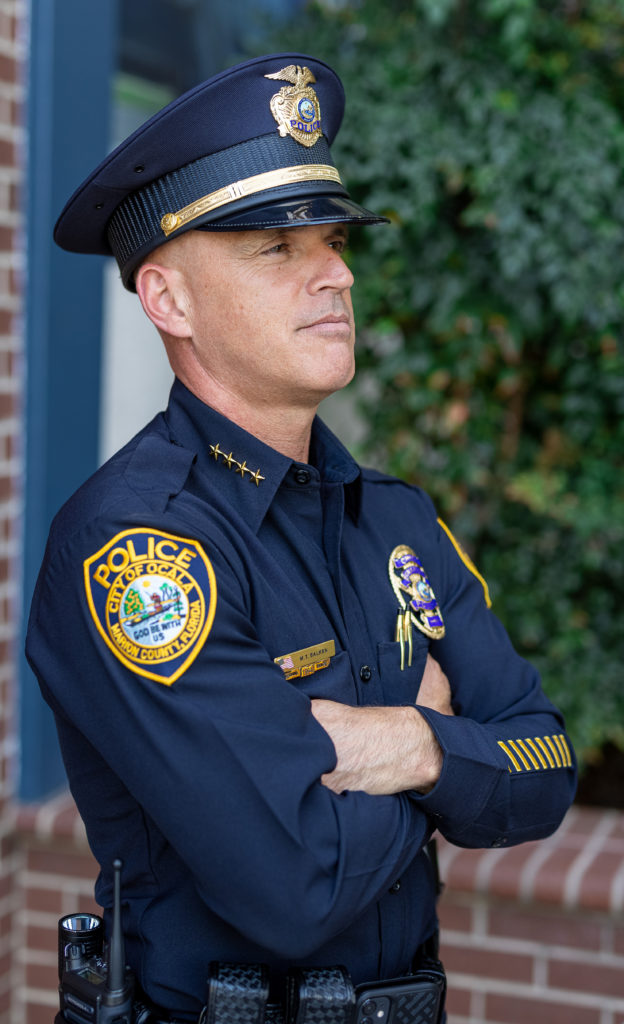 Balken’s parents were a housepainter and stay-at-home mom. He spent his first 10 years living in the Ocala National Forest. If he wasn’t in school, he was fishing or playing outside. When his parents divorced, he and his three brothers stayed with their father.
Balken’s parents were a housepainter and stay-at-home mom. He spent his first 10 years living in the Ocala National Forest. If he wasn’t in school, he was fishing or playing outside. When his parents divorced, he and his three brothers stayed with their father.
“My dad kind of bounced us around. We went from Ocala to Palm Beach to Palatka to Crystal River, Homosassa, Hendersonville, North Carolina,” he recalls. “Different schools, different communities. We always ended up back in Ocala for short stints. When I was 12, we lived in Lake County, way out in the country. We were on government assistance and we ate government cheese.”
On the road to school one day, he met his future wife, Dawn.
“It was really sweet. She was in high school; I was in middle school,” he recalls. “We started to go steady. We lived out there about a year and half, and then the moves started again.”
His older brother moved back to North Carolina and his younger brothers went to live with their mom in Flagler Beach. Balken and his father were living in Ocala and, during the teen’s breaks at Vanguard High School, he worked with his dad remodeling houses. When that work slowed down, Balken applied for a job at Quincy’s restaurant.
“I had to lie on my application because you had to be 16 and I was only 15, so I made the five almost look like a six. They hired me as a dishwasher and I began dating a waitress,” he recalls. “My dad came to me one day saying, ‘Hey, we’re moving again; we’re going back to North Carolina.’ I said, ‘Listen Pop, I’m done. I don’t want to keep doing this.’ He said, ‘No, you’ve got to go with me,’ and I said ‘I’m not going.’”
Balken found some roommates and started paying bills.
“I made it to 16 before I dropped out of high school to increase my work hours,” he says. “Ultimately, I went back to the work I knew growing up and started framing houses down in The Villages.”
 One day a couple of years later, a nail gun “double bounced” and shot a U-shaped nail through his thumb. He told his buddy Mike Driggers, who took him to have the nail removed, “I’ve had enough of this. I want to be a cop.”
One day a couple of years later, a nail gun “double bounced” and shot a U-shaped nail through his thumb. He told his buddy Mike Driggers, who took him to have the nail removed, “I’ve had enough of this. I want to be a cop.”
Around this time, Balken heard that Dawn’s sister might have been in a bad car crash. He called the family home and Dawn’s father said she had been trying to reach him for a couple of years.
“We reconnected and I moved to DeLand,” he says with a grin. “And I got my GED so I could start recruit school at the police academy. Her mom, Judy, wanted to be a corrections officer, so we carpooled.”
Charting a Career
Balken says he graduated from the police academy “right after the Rodney King incident in California and the L.A. riots.”
On March 3rd, 1991, after a high-speed chase, Los Angeles police officers pulled King out of a car and beat him. The assault was captured on videotape. Four officers were indicted on charges of assault with a deadly weapon and excessive use of force. In April 1992, after a three-month trial, a predominantly white jury acquitted the officers, which sparked violent riots.
“I had graduated second in my police academy class and started applying for jobs,” Balken remembers. “I was told by chiefs and sheriffs around the state that, based on what was going on, they were making an effort to better match the demographics of the populations they served and I didn’t fit that mold. I had gone from Tallahassee to Treasure Island, and Jacksonville to Palm Beach and everywhere between, and I couldn’t buy a job—to the extent I didn’t think I was going to become a police officer.”
That was when he took the military placement exam. He told a recruiter he loved to surf and would welcome a post near the ocean. The recruiter explained that, based on his exam score, he was rated to do certain jobs.
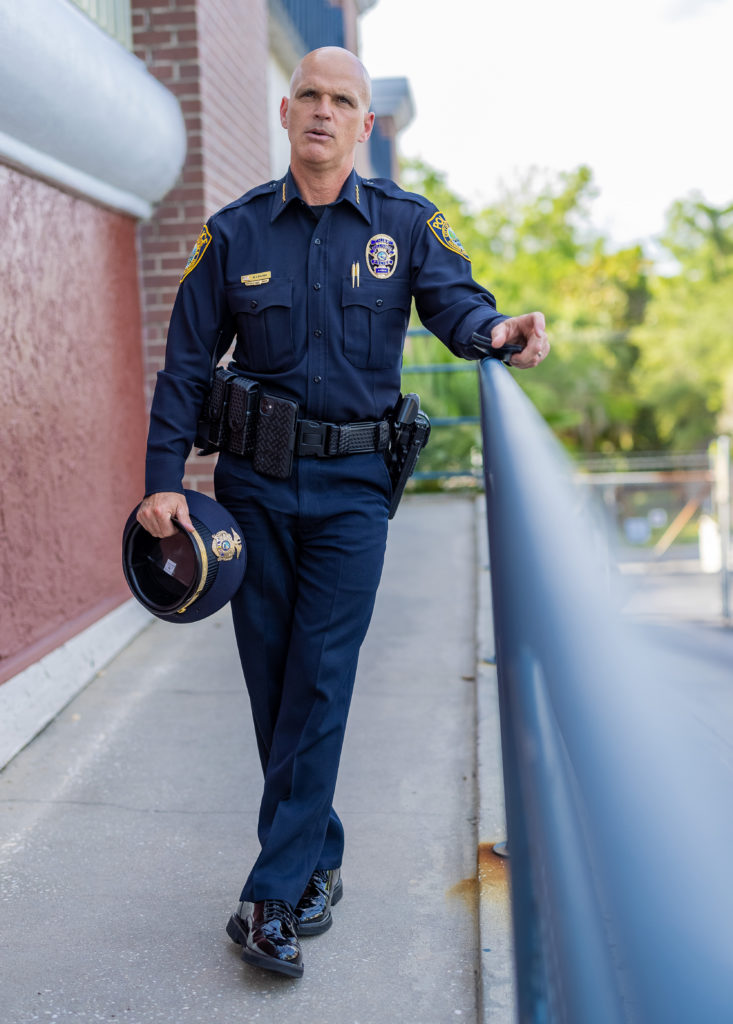 “The recruiter said, ‘Now, you can pick any of those jobs and we get to tell you where to go. Or, you can tell us where you want to go and you’re going to do the job we tell you to do. How about Hawaii and the infantry?’ And I said, ‘Sold! Let me talk to the family and I’ll be back.’”
“The recruiter said, ‘Now, you can pick any of those jobs and we get to tell you where to go. Or, you can tell us where you want to go and you’re going to do the job we tell you to do. How about Hawaii and the infantry?’ And I said, ‘Sold! Let me talk to the family and I’ll be back.’”
But then he got a call from the Marion County Sheriff’s Office and soon was sitting in front of Sheriff Don Moreland.
“I remember him looking me up and down and one of his questions was about the L.A. riots and Rodney King,” Balken notes. “He said, ‘Son, you’re 140 pounds soaking wet. You’re 19 years old and I’m uncomfortable putting you out on the road with a gun and a badge. How about we start you in the jail and, if you do well, I’ll give you a shot at patrol deputy in a year or two.’ I said, ‘I’ll take it.’”
Balken began as a corrections assistant and attended school to become certified as a corrections officer. He liked working at the jail but still wanted to be a cop. In April 1994, he got that chance, at the OPD.
“I started where every new cop starts, in patrol, and started having a blast,” he shares. “I tell people that being a cop, a patrol officer specifically, is like having a front row seat to the greatest show on earth. You’re seeing the absolute best and the worst that mankind has to offer.”
By his third year with OPD, Balken had become a field training officer. A sergeant suggested he apply for detective. Although he wasn’t sure he had the “skill set,” he soon was working in the investigative bureau.
“I was working everything from auto burglaries, commercial burglaries to grand thefts. And I was really good at it,” he states. “I think I learned some skills working in the jail where I could relate to a lot of the people I was investigating and was effective in getting confessions.”
Balken wanted to grow in his work and sought a position in major crimes. He started working sex crimes and child molestation cases, then homicides and death investigations, interacting with officials at the Florida Department of Law Enforcement and federal and local agencies.
“You begin working very closely on everything from investigations to evidence recovery and testing and DNA work,” he explains. “I began to develop relationships with prosecutors at the State Attorney’s Office. I worked with Brad King, Ric Ridgway, Amy Berndt, Robin Arnold, Janine Nixon, some of the best. Judge Tatti was a prosecutor back then. I realized just how brilliant some of them were at keeping our community safe.”
Balken also had to learn to navigate the stress of handling such cases, including working with the families of victims to get them counseling and advocacy.
“The victim of a homicide is gone, so you try to serve as a voice for that victim,” he shares. “You’re also dealing with the family and trying to help them through one of the worst days of their entire life. I’ve got a lot of dear friends that are family members of homicide victims and I like to think both sides are better for that relationship.”
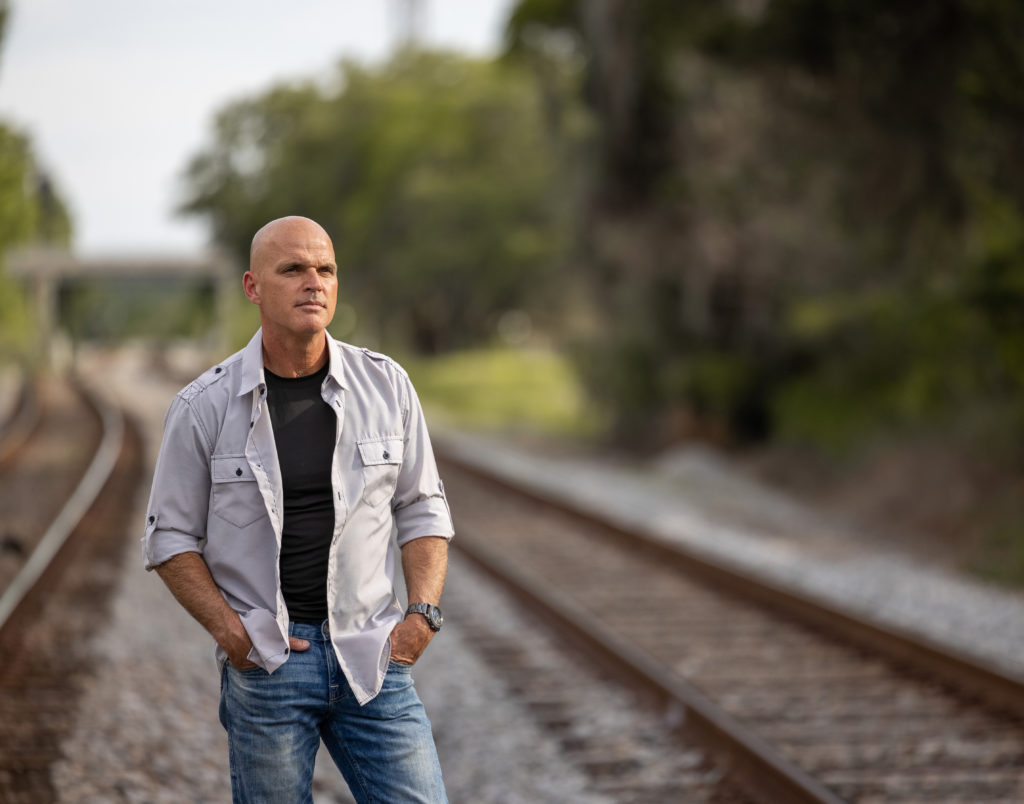 After serving as a major crimes detective for several years, it was suggested that Balken put in for sergeant, with an eye toward being a supervisor.
After serving as a major crimes detective for several years, it was suggested that Balken put in for sergeant, with an eye toward being a supervisor.
“I had attained the job I had dreamed about, being a police officer, then detective and major crimes detective, and I was damned good at it,” he says. “But it was put to me this way, you’re really good at what you do and we need you to pass that along to others coming behind you. And you realize, OK, this is bigger than what I want. So I applied and got promoted.”
He says supervisors often are exposed to multiple units or bureaus within an agency to better equip them to handle a variety of situations. His leadership role found him with the SWAT team, in special operations, in internal affairs and back in patrol and investigations.
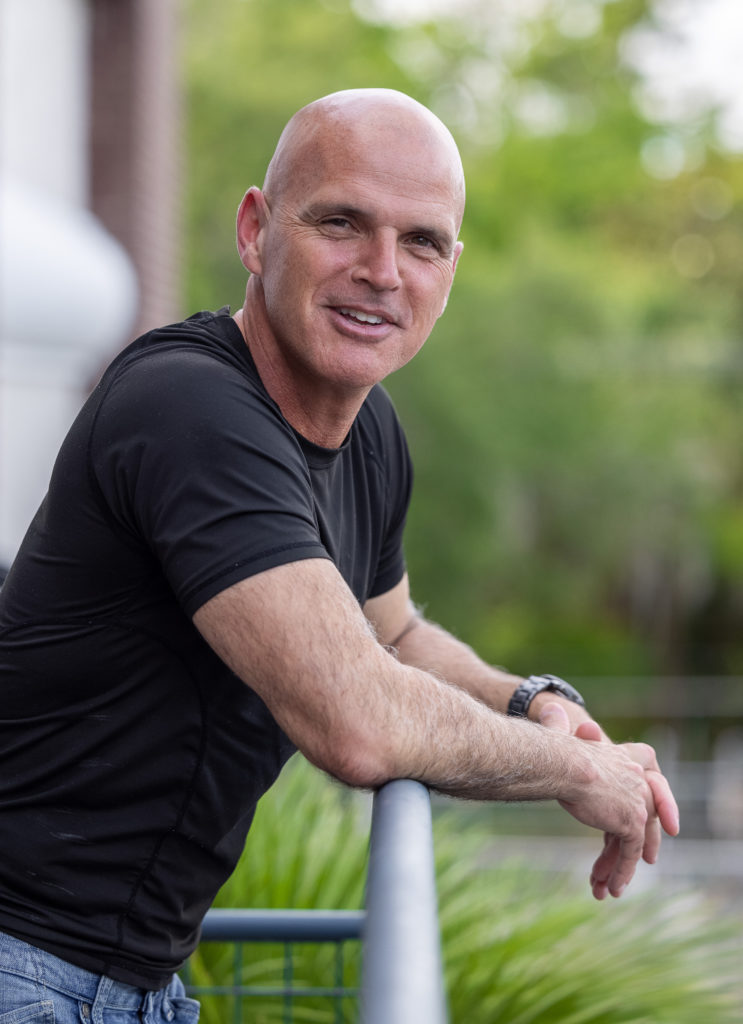 “Being an administrator is a difficult job, a demanding job and you’re relying on a lot of people,” he explains. “You’re not succeeding on your own; you’re a whole agency of over 300 people. And they all come in with a drive to forge on and do right for the citizens they serve. It would be easy for some of them to find another profession, but they don’t. They love this community. They don’t do it for the money. They do it because of that servant heart they have. They amaze me every day. And I often tell people that these sensationalized news reports you see are not indicative of the support that we see here. Ocala is a great place to be a police officer.”
“Being an administrator is a difficult job, a demanding job and you’re relying on a lot of people,” he explains. “You’re not succeeding on your own; you’re a whole agency of over 300 people. And they all come in with a drive to forge on and do right for the citizens they serve. It would be easy for some of them to find another profession, but they don’t. They love this community. They don’t do it for the money. They do it because of that servant heart they have. They amaze me every day. And I often tell people that these sensationalized news reports you see are not indicative of the support that we see here. Ocala is a great place to be a police officer.”
The Graham Connection
Balken and Graham had similar backgrounds.
“His father was a contractor, so Greg grew up banging nails as I did,” Balken says. “We were both scuba divers, found ourselves on the lake often. I remember going barefoot skiing with Greg a few times; I think he was trying to drown me,” he continues playfully. “We had a lot of hobbies in common and both started at a young age in police work.”
Balken says Graham was a sergeant in the investigations bureau when they first met.
“I was a new cop and had an issue with one of his detectives. I walk in and see this young guy sitting there in a tie,” Balken remembers. “Greg was tall, had great hair, boyish good looks, a great tan. Enter Mike Balken, the short bald-headed guy. We became pretty close before he left for Cedar Rapids to become chief up there. When he came back, our friendship grew and our families got to know each other. We had some shared visions and philosophies about police work and how we can be more effective in utilizing resources and allocating manpower. We were just like-minded in that respect.”
It was while Balken was a captain in internal affairs that he became disillusioned with the job. By then, Graham was police chief.
“I kind of lost the vision. I had lost my purpose,” Balken reveals. “I remember walking into Greg’s office and I said, ‘Chief, I’m going to quit.’ He had this shocked look on his face and said, ‘What are you talking about?’ I said, ‘Chief, you know what kind of background I have, very similar to yours. When we got done at the end of the day, we could see what we had made with our hands. I had that as a cop, and as a detective, where you could see a violent offender going to prison and the community safe. I’m in a position here where I just don’t see it and I need that. I need to see what I’m building. I’m going to be leaving.’”
Balken says Graham “corrected” him, saying, “Mike, you’re not going anywhere. You’re going to be my deputy chief.”
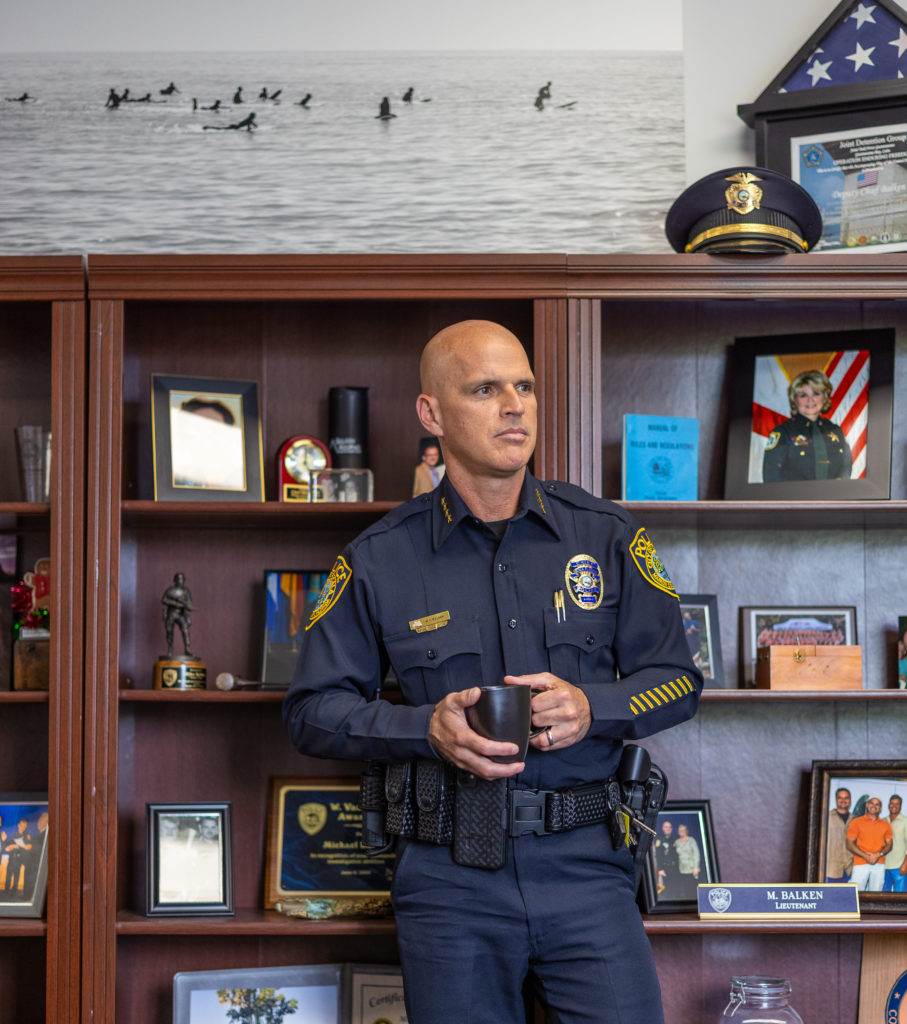 “And I kind of chuckled and said, ‘Yeah, that’s a long way off and there’s a few other people,’” Balken remembers. “Greg said, ‘You’re not building a house anymore; you’re building people. That’s your job and that is going to be your job as deputy chief.’ He put everything into perspective and I changed my approach and forged on.”
“And I kind of chuckled and said, ‘Yeah, that’s a long way off and there’s a few other people,’” Balken remembers. “Greg said, ‘You’re not building a house anymore; you’re building people. That’s your job and that is going to be your job as deputy chief.’ He put everything into perspective and I changed my approach and forged on.”
Balken says Graham was a “great leader” and is sorely missed on many levels. He says cops are used to seeing tragedy, but it doesn’t often happen internally.
“Our folks here are some of the best you could ever meet,” he asserts. “They understand human nature so they are quick to identify if you are having trouble with something like this and I think that played a big part, not that we’re through it, because we’re still dealing with the loss of a great leader, mentor, friend, but we were able to lean on each other and we brought in some critical incident stress folks that played a role in allowing some of us to move in the right direction.
“It’s been a tremendous transition period,” he adds. “We had a chief who was much loved by the department, by the community, and we had to appoint a new chief. And with a new chief coming in, especially on the heels of such a tragic event, that poses some unique challenges and the potential for problems with everything from morale to vision and philosophies. That also created the need for a new deputy chief and new majors, all the way down to sergeants and new hires. And this came on the heels of two of our female majors retiring, so there was a big need to make some really important decisions really quickly. And I got COVID and was trying to get through some of this stuck at home. I’m proud of these people, sworn and non-sworn, who have done an incredible job of picking up the football and moving it down the field in the face of some really significant adversity and challenges.”
The Long Game
As a family man, with a deep devotion to Dawn and their children, Jacob and Riley, Balken says Graham taught him one invaluable lesson, that you have to have an effective work/life balance.
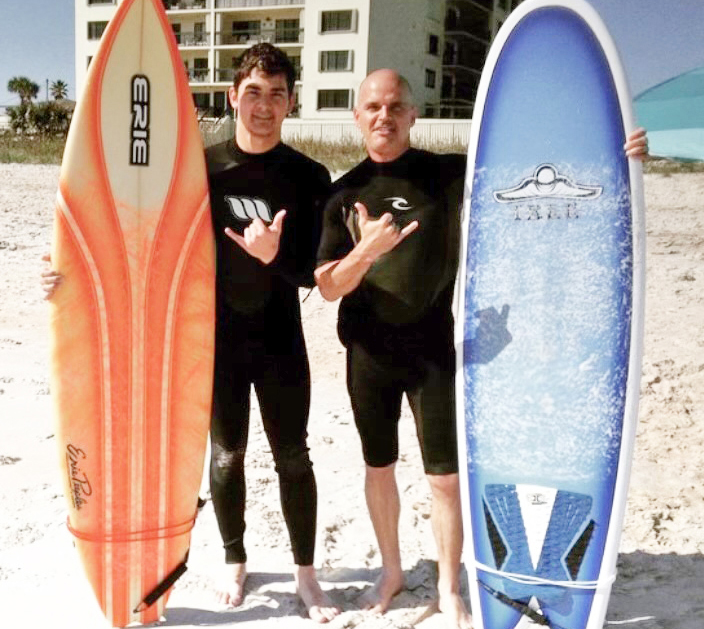 “I love my wife to death; I love my kids beyond imagination. Ensuring that they understood that with the demands of the job has been a challenge over the years,” he reflects. “As a cop, you miss a lot of birthday parties and Christmas doesn’t always fall on December 25th. But hard work pays off in the end and that’s probably why I’m sitting in this office today.”
“I love my wife to death; I love my kids beyond imagination. Ensuring that they understood that with the demands of the job has been a challenge over the years,” he reflects. “As a cop, you miss a lot of birthday parties and Christmas doesn’t always fall on December 25th. But hard work pays off in the end and that’s probably why I’m sitting in this office today.”
As an avid outdoorsman, he is at his happiest when he is out on a boat, fly fishing in a rushing river or camping with his family. He will often invite some of his officers, colleagues and friends along on those trips, as he gets great satisfaction out of sharing these sorts of experiences.
It is atop a surfboard, though, that he is truly in his zone. Dawn even gifted him a black-and-white photo of a group of surfers out on the water, which dominates one side of his office and offers a daily reminder of his personal passions.
“I do, I love to surf still,” he offers. “The older you get, you find that you need a longer and longer board. So, my board is almost 10 feet long now. My son and I and a couple of officers and detectives surf and we try to get out there as much as we can. I send a text to the mayor and let him know I’m going to be out of touch for a little bit and it’s just a time I can focus on me and relieve some stress. I love surfing because you can’t take a cellphone with you, right! It’s a great way, the only time, I can really disconnect.”






